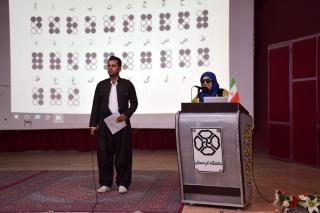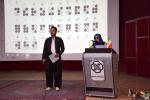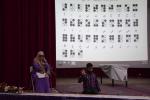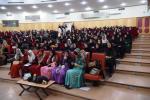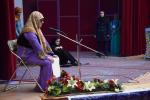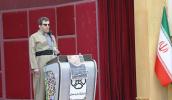This is the 16th case study from SUEUAA (Strengthening Urban Engagement in Universities in Asia and Africa), written by Nematollah Azizi of the University of Kurdistan and concerns the contribution of his university to the inclusion of blind people in the university. People with disabilities represent a significant percentage of the community. Disabilities are diverse and can range from obvious impairments to invisible conditions. This includes people with sensory impairments /loss, including those with a vision impairment or who are blind.
People with disabilities have long faced considerable barriers to equal participation and involvement in society. The three main barriers that prevent people with disabilities from being active in their communities and having their voices heard are:
- Access to information and services;
- Social attitudes and behaviours; and
- The built and physical environment.
There are 135 million blind people in the world, 90% of them in developing countries. Iran ranks 16th in the world in terms of the number of visually impaired, and the number of visually impaired in Iran is six times that of the blind. According to the latest screenings in the country, the deputy head of the Association for the Blind announced that there are 115,000 blind people in Iran. In addition to this, about 700,000 suffer from visual impairment. They are struggling to access minimum living standards, and according to experts, their unemployment rate is over 40%, while the blind are the most educated among the disabled. In 2018, the number of blind students in Iran has reached 5000 in country’s public universities A number of the country's educated people have been isolated in their homes, having no personal support facilities because they are blind. Employment, education, transportation, education, lack of access to rehabilitation services and supplies, including the standard cane, salvage equipment, computers and special kitchen appliances, and the difficulty of using public transportation are among the problems of the blind. City-wide public places, especially the subway, have not been well-adapted and secured for the blind. Government agencies often refuse to accept their demands.
Although there are a large number of blind people in villages and deprived areas who have not been identified yet, formal information indicates that 3600 blind people have been identified in the province of Kurdistan. Furthermore, in the province, 30 blind students are studying at graduate and postgraduate level.
Blind people are part of the population of any community with special needs that need to be actively supported in all areas of social life. In fact, respect for their citizenship requires that, in addition to removing obstacles to their effective participation in social and economic activities, their equal access to opportunities in society also has be emphasized. This will result in an improved quality of life of blind people as a basic human right.
The UoK’s community engagement initiatives for blind students, which has extended to a wider targeted group of people in Sanandaj, is considered as a unique service that enables these individuals to practice their rights and daily responsibilities effectively, to move freely in society, to learn about what resources are available within their community and how to use these resources properly.
As university the UoK has emphasized a community-oriented strategy in its five year strategic plan, and it has widely opened its doors to public and private organisations, including NGOs and individuals. This has been done through several MoUs with different parties in the city. These efforts has targeted disadvantaged individuals and groups including disabled people. Among the targeted groups, blind people have a notable position, and we enrolled 17 blind students.
Within the University of Kurdistan we have adopted some innovative approaches and launched effective initiatives by which blind people are empowered significantly including:
- The University of Kurdistan has launched a library accessible to the blind and low-sighted students containing 1500 audiobooks and 150 Braille books. Besides this, the Department of Blind Students is providing high-quality services to its active members from inside and outside of the university.
- The first camera for the blind was designed and built by a visually impaired student at Kurdistan University. This camera is connected to the internet via GPS and has the purpose of allowing the blind person to talk to the person connected to him and guide the camera along the way.
- These students were able to design and install braille printing of room titles at the School of Foreign Languages and Humanities so that blind students could find their room by touching these boards.
- Another innovation of the blind students of the University of Kurdistan is the Arabic and Persian bilingual dictionary, which has been provided to the blind in written and audio terms with the meaning of each word.
Indeed, through the support of the university, the blind students are trying to solve the problems they face. Fortunately, studying at the University of Kurdistan has provided the ground for creativity and innovation for the blind.
Our work also extends beyond the university. In line with the UoK's commitment to social responsibility and community-oriented services, we have made available the technologies developed by the university that allow blind people to have greater liberty to a wider community. The majority of the blind people in Kurdistan generally, and in Sanandaj particularly, are already well-educated. Our Department for Blind Students has announced that its services, including consultation, practical courses, and the use specific technical equipment will be available free of charge for use by the blind and partially sighted beyond the institution.

